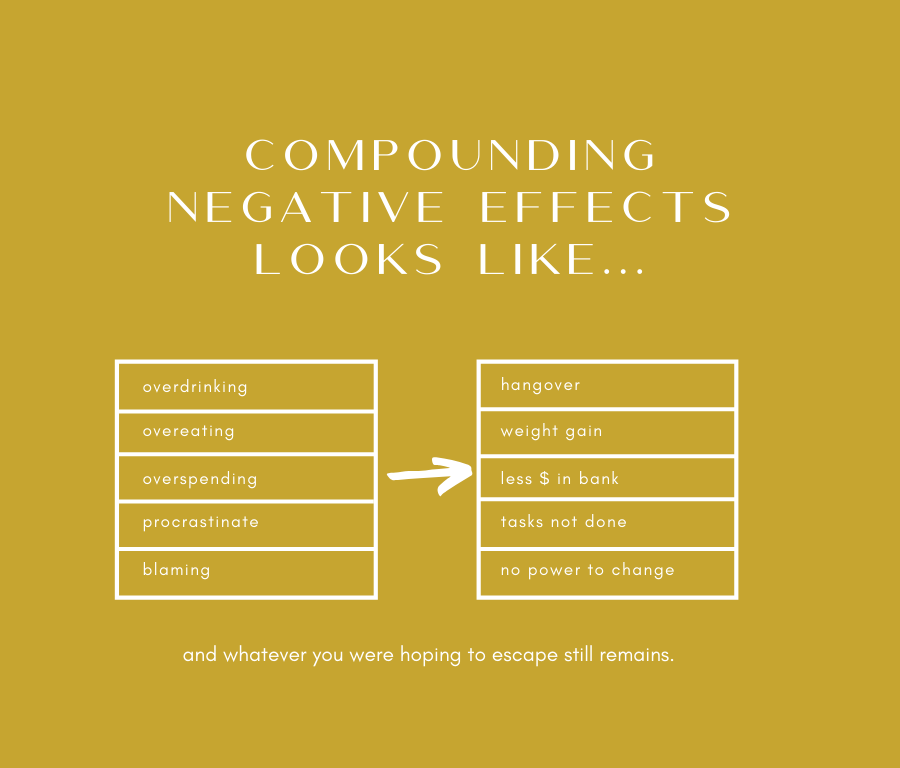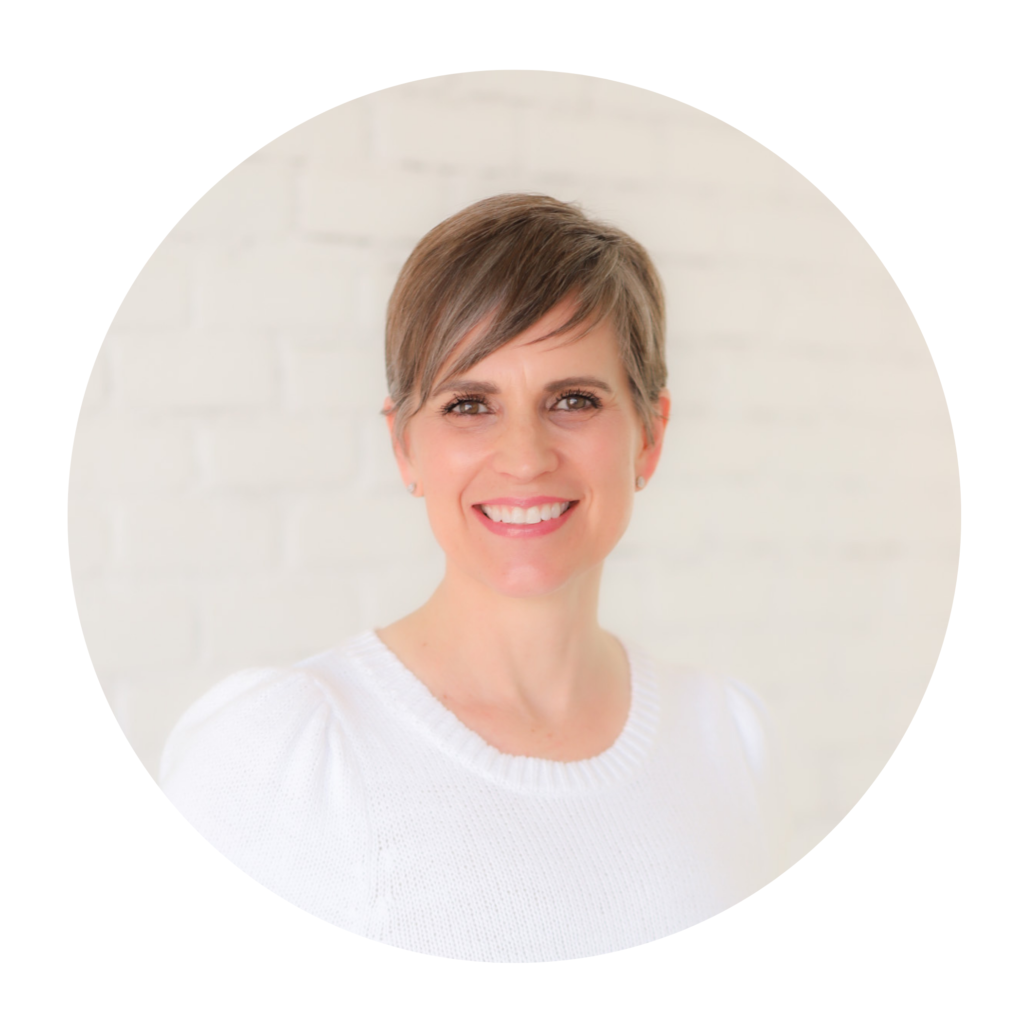Growing up, and well into my adulthood, I had assumed that my feelings were being created by the people and events around me. A person said something that was unkind, and I felt sad. I received a good grade on a report and I felt happy. My mother bought me a new dress and I felt loved.
When I was introduced to the idea that my feelings weren’t the result of something someone did or said, but that I created them, I was skeptical. Why would I create all of the terrible feelings I had previously experienced? To be clear I had created a lot of them.
And then it all made sense.
The way that I was thinking about the world around me was in fact creating my emotions. I had just always skipped over that part and connected the event or words to the emotion. All this time I had missed an important step, and it was the one that I had the most control over.
Right now you might be attributing the way you are feeling to the state of the economy, the corona virus, or being in the house with your school-aged children and husband all day. I know the temptation to blame outside circumstances is real. But when we believe that our feelings are caused by events or people, we have to change them so we can feel better. Have you tried changing the world or someone lately?
The Power of Calm
Many times what we want is for the chaos to go away so we can feel peaceful and calm. But life is always presenting us with challenges. Right now we are going through a collective challenge. But, I want you to consider the challenges you had before the pandemic. I am guessing you wanted them to go away so you could feel better, too.
Before you try to change what you are thinking, I invite you pause and be willing to honor what you are currently feeling. You can find calm in the midst of chaos and challenges.
When we are calm, we are able to think more clearly, are less irritated by others, are more creative, and in general are able to enjoy our life more. Additionally, when we are calm, we are helping our immune systems by reducing the presence of unnecessary cortisol (the fight or flight stress hormone) in our body.
How to do it?
We must allow the feelings we are currently experiencing. That simply means stopping the emotional battle we are waging which typically shows up as needing to escape from our emotions.
When we resist our emotions, we often add unnecessary suffering into our lives. When you are feeling worried, what do you often do? Each of us have developed coping strategies that influence our responses. We might not even recognize we are doing them.
Some common escape coping mechanism include: over-eating, over-drinking, over-working, over-spending, over-consuming of social media, procrastinating, fighting, blaming, etc. The lengths we will go to escape negative emotions is long. But what each of these escape coping mechanisms have in common is they end up compounding the negative effect we feel. What we discover on the backend, is that there is no permanent escape.

The poet Robert Frost, understood this well when he wrote “the best way out is always through.” (A Servant To Servants)
Feelings are really harmless, but our reactions to them can be quite damaging.
Let me give you three examples from this pandemic season that you might be able to relate to.
The first is from the stock market. It didn’t have it’s finest day a few weeks ago and a market crash can be mentally devastating. Panicking when your portfolio decreases and selling is the worst thing to do. And while we may “know” that, when you feel panicked it seems like the only thing to do. Our brains go full on flight or fight mode, and we don’t think as clearly. To get rid of that uncomfortable feeling of panic, some investors sold their stock and converted it to cash on the lowest day of trading.
What would calm do?
The second is unwanted weight gain. This is one that I know is happening to many of my friends and clients. And it is one that I am personally familiar with. Maybe you are finding yourself wanting a little something sweet to take the edge of during the day. What starts as once a day turns in to several times a day because that darn feeling just keeps coming back. To be fair, there is science to back up this response in our body. Researchers have proven that our stress responses are suppressed when we consume sugar. That is the good news. The bad news is that consuming sugar to manage our stress usually leads to weight gain.
What would calm do?
And lastly, fighting with our children and/or spouse. Many of us are spending more time with our family, which we always said we wanted more of, so why are we fighting with each other? When we feel anger, instead of just processing the anger, and understanding the thoughts that are causing them, we try to get rid of the anger by projecting it on to other people. The next thing you know, we are fighting with our loved ones and irritated by everything they do. Our families right now are convenient targets for our anger.
What would calm do?
Be okay with feeling bad.
This is not he same as denying our emotions or pretending to be happy when we aren’t. It’s not turning a blind eye to what is happening in the world. It IS honoring what we are feeling, and not trying to run away from it. It is having compassion for ourselves rather than judgment.
Yes, emotions are heightened right now. But, resisting them and fighting them will only make it worse. Feeling anxiety, worry, depression, fear, anger, and other similar emotions is part of experiencing a full human life. This is the way life was designed. And yet, many people are hoping for the day when all of life’s problems are gone and they can finally be happy.
As long as we are living there will be problems, but peace and calm is always available.
Since life is designed to include negative emotions, what if you became really good at experiencing them?
Here are four steps to becoming good at feeling bad:
1. Name your emotion in one word.
Yes one word.
When asked how you are feeling do you typically respond with “good” or “bad”?
The eight basic emotions according to Dr. Robert Plutchik are: joy, sadness, trust, disgust, fear, anger, surprise, and anticipation. Of course, there are variations of each of these emotions, and you likely have your favorites. In fact there is a complete dictionary of emotions covering an extensive collection of feeling focused words for anyone wanting to grow their emotional vocabulary.
What you name it, isn’t nearly as important as naming it. But do, pick the word that most closely describes what you are feeling. Maybe it is bad, or terrible. You can get fancy later.
2. Own your emotion.
A lot of time we would rather blame what is happening outside of us for what we are experiencing inside. When you blame rather than own, you are giving your power away. It is the difference between life happening to you and you happening to your life. Owning means no more blaming.
How do yo own an emotion? Start by saying “I am choosing to experience ….”.
There are no wrong or right emotions. Whatever the emotion you are experiencing is the one that you say. Maybe it is anxiety, fear, doubt, or worry. If you are fighting against it, you are not choosing it. If you are not choosing it, you cannot change it.
Don’t rush this process. If you are rushing, it’s because you don’t want to feel it. Stay here as long as necessary.
There will be times when you want to feel anxiety, or sadness. When someone dies, we don’t want to feel happy. We will want to grieve, because that is part of being human. Whether the emotion is wanted or unwanted, own that you are the creator of it. Yes, you really are that powerful.
3. Welcome the emotion.
This step is best explained with an analogy.
Imagine you are hosting a party (when we are allowed to have parties again) and emotions are the guests. The way many of us go about this is that when loneliness, sadness, or anxiety show up uninvited we try to barricade the door to keep them from entering. We spend so much time and energy trying to keep them out of the party that we become exhausted. Meanwhile, we have allowed happiness, joy, and gratitude in but we are not able to enjoy them because we are busy trying to keep the others out.
Trying to keep these emotions out of the party might look like over-eating, procrastinating, or any number of negative coping strategies. (Remember they are negative because they have unwanted consequences).
All emotions have the potential to teach us and guide us. When we avoid and resist them, we are also avoiding our life. What we resist persists. Rather than trying to keep uninvited emotions from joining your party, allow and welcome all of them.
Their presence will make everything sweeter, precisely because of the contrast. Much like a recipe in which salt enhances the flavor of a cookie. Leave out the salt, and it isn’t as sweet or delicious. You need both the sugar and the salt.
4. Describe the emotion.
Right now some of you are experiencing anxiety. What does anxiety feel like to you? Try describing the sensation in your body.
The way you experience the sensation of specific emotions will be unique to you. Using the example of anxiety, common descriptions are: uncomfortable, heavy, tightness, knots, tension, clenching, etc.
Image you are explaining your emotion to a cute little Martian, who has never felt what you are feeling. How would you describe it?
If you are having a difficult time describing it without using other emotions, here are some questions to get you started: If it were a color, what color would it be? If it were a temperature, what temperature would it be? If you could hold it in your hand would it be heavy or light? It is soft, or hard? Where in your body do you feel it? Describe how it feels in your body. Does it feel fast or slow?
Get good at feeling bad.
When you’re feeling frustrated and the urge to go to the refrigerator pops into your mind, what if you gave yourself 5 minutes to just observe yourself having a human experience? Instead of putting off that thing you want to do because you’re afraid of failing, what if you felt discomfort and did it anyway? Allow yourself to feel your emotions, and keep showing up for you life.
Be courageous enough to be with your feelings, to witness, observe and stay with yourself without judgement or escape. As you begin to fully experience your emotions you will discover the power of being able to respond with purpose rather than reacting out of fear. As you increase your awareness of all of your feelings you not only gain control over them, you also increase your ability to FEEL. That includes the positive ones, too.
We are stronger than we realize. But when we are fighting our emotions, and trying to escape them, we are never able to realize just how strong we truly are.
What would you be able to do, create, or experience if you weren’t afraid of feeling negative emotions? It is up to you. Is it worth being uncomfortable without running away in order to achieve it? Only you will know that answer to that.
Photo by Danielle MacInnes on Unsplash



